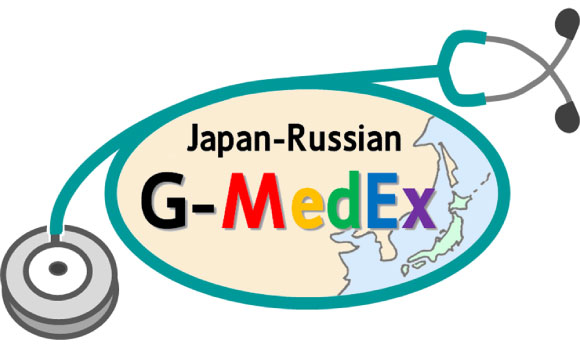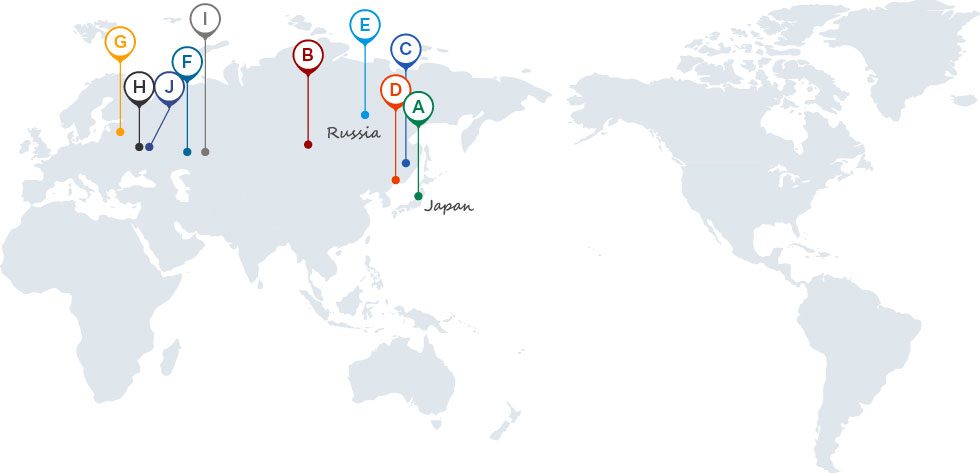







This project is an attempt to make a ground-breaking "medical education framework" as we have got a chance to implement the “Re-Inventing Japan Project” initiated by Ministry of Education, Culture, Sports, Science and Technology of Japan.
The project is titled Japan-Russian G-MedEx Project - Globalization and Medical Exchange Project for Career Development of Young Students in Japan and Russia, it aims to foster human resources capable of being globally active and to develop global education system in order to strengthen foreign relationships.



This project is aimed at medical faculty students - “undergraduate” and “graduate” and English is chosen as the main language. Though undergraduate student exchange period is very short, it gives a chance to take a look at international medicine and to strengthen relationships with partner universities. Graduate student exchange will help to educate young Japanese and Russian specialists, fostering "global medical leaders”. Based on the needs of both countries, courses are suggested according to specialization of universities.
| Total number | ||||||||
|---|---|---|---|---|---|---|---|---|
| 2015 | 2016 | 2017 | 2018 | |||||
| Planned | Achieved | Planned | Achieved | Planned | Achieved | Planned | Achieved | |
| Overall | 27 | 33 | 27 | 37 | 33 | 49 | 38 | 57 |
| Outbound | 11 | 13 | 11 | 16 | 13 | 20 | 15 | 25 |
| Inbound | 16 | 20 | 16 | 21 | 20 | 29 | 23 | 32 |
| Numbers acording to the program type | ||||||||||
|---|---|---|---|---|---|---|---|---|---|---|
| Program type | Classifi- cation |
2015 | 2016 | 2017 | 2018 | |||||
| Planned | Achieved | Planned | Achieved | Planned | Achieved | Planned | Achieved | |||
| 1 | Summer exchange program for medical students | Outbound | 10 | 10 | 7 | 7 | 8 | 12 | 9 | 18 |
| Inbound | 11 | 11 | 7 | 12 | 9 | 18 | 11 | 20 | ||
| 2 | Medical research training program | Outbound | 1 | 1 | 2 | 7 | 2 | 5 | 2 | 3 |
| Inbound | - | - | - | 1 | 0 | 3 | 0 | 2 | ||
| 3 | Regular PhD Program | Outbound | 2 | 2 | 2 | 2 | 3 | 3 | 4 | 4 |
| Inbound | 4 | 4 | 4 | 4 | 6 | 6 | 7 | 7 | ||
| 4 | Double Degree Program | Inbound | 2 | 2 | 3 | 3 | 3 | 0 | 3 | 1 |
| 5 | Special program for priority placement of foreign students (PhD) | Inbound | 2 | 2 | 2 | 1 | 2 | 2 | 2 | 2 |
| 6 | Privately financed international students | Inbound | 1 | 0 | 0 | 0 | ||||